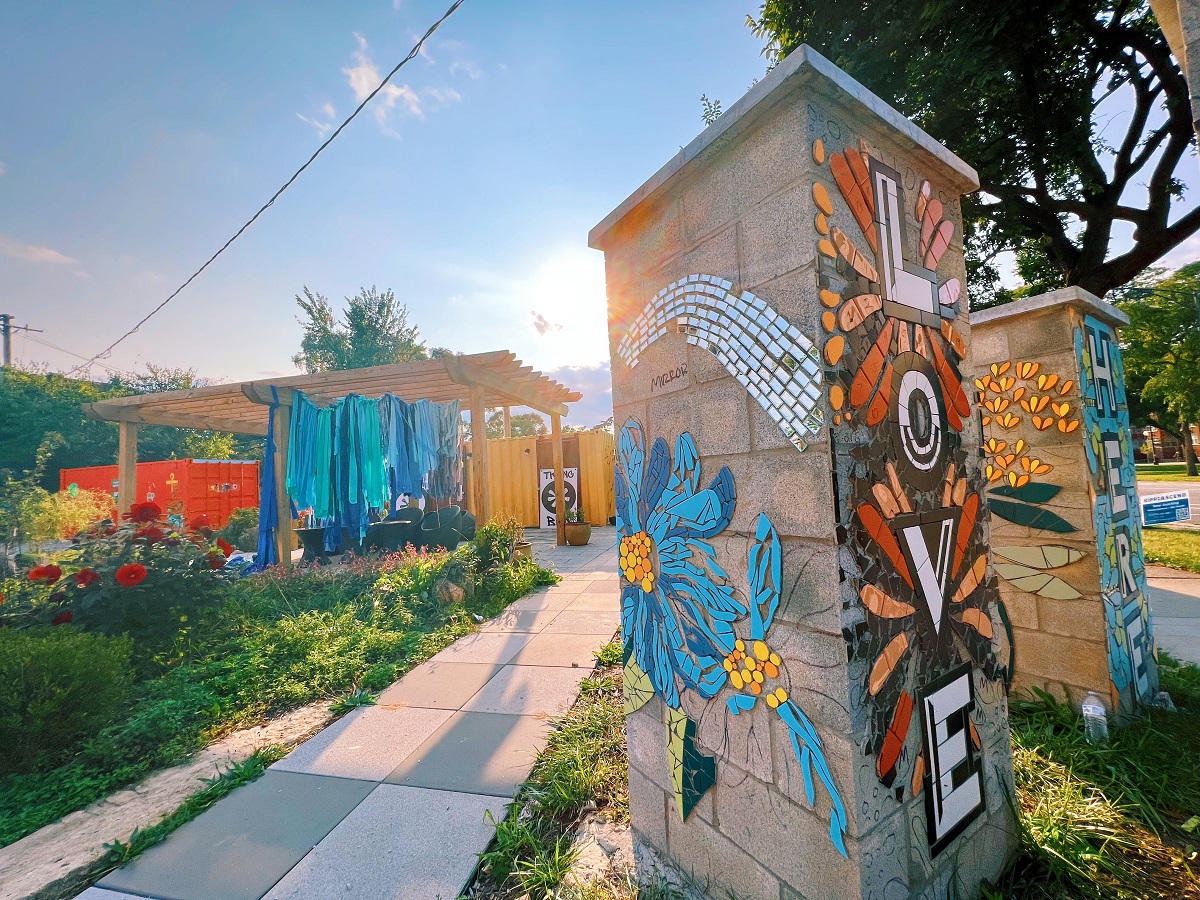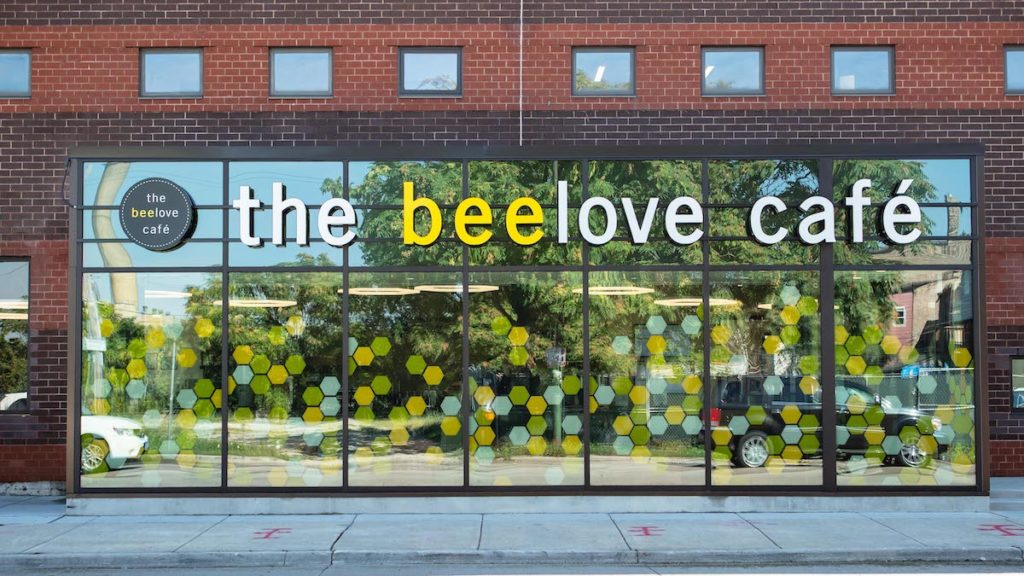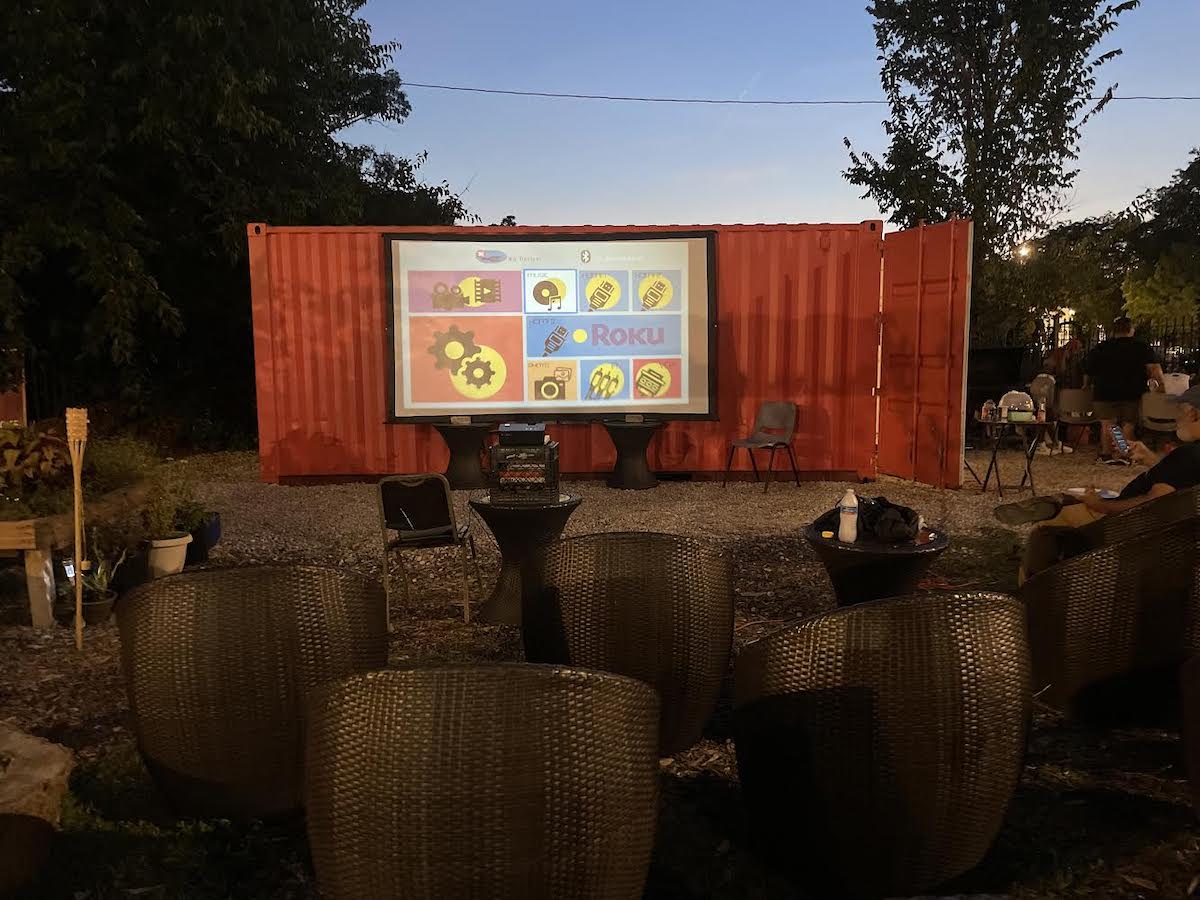- Best Street Market for Entrepreneurs: Black Wall Street on Roosevelt
- Best Nonprofit Coffee Shop Serving Local Honey: Beelove Café
- Best Community Museum in Shipping Containers: Lawndale Pop-Up Spot
North Lawndale, located on Chicago’s West Side, is a neighborhood with a rich history. A short walk around the neighborhood reveals several beloved historical landmarks.
On Douglas Boulevard, the striking facade of Stone Temple Baptist Church, which once served as the First Romanian Synagogue and still features the Star of David in its windows, speaks to the community’s religiosity and to its past as a center of the early Jewish immigrant community.
On Hamlin Avenue, the Dr. King Legacy Apartment complex commemorates the fact that Martin Luther King Jr. based his Chicago activism in the 1960s out of an apartment in North Lawndale.
On Central Park Boulevard, the African Heritage Garden—with its large flower bed in the shape of the African continent—reflects the predominantly African-American community of North Lawndale that resulted from the Great Migration and urban renewal projects elsewhere on the South Side.
There is much more to these landmarks than just historical significance, however—each of these sites serves as a hub of current-day activism and community gathering in North Lawndale, highlighting the deep commitment of the neighborhood’s residents to investing in their community.
At Stone Temple, volunteers convene every Monday for “Soup for the Soul,” a weekly event where visitors receive free warm meals and fresh produce. The Dr. King Legacy Apartment complex has forty-five low-income units, while the organization that manages it—the Lawndale Christian Development Corporation—is working to advance a new “1,000 homes” campaign to build affordable housing in the neighborhood. Finally, the African Heritage Garden is a central hub for many in the community and is linked to recent efforts by the Greening, Open Space, Water, Soil, and Sustainability (GROWSS) committee of the North Lawndale Community Coordinating Council to beautify the neighborhood. In addition, the African Heritage Garden occupies a lot that was once vacant and frequented by gangs. Its transformation showcases the power of creativity and connection to bring people in the neighborhood together.
Ultimately, Lawndale’s residents—both long-term and recent arrivals—are the lifeblood of the community. As you walk around the neighborhood learning about its vibrant histories of activism and community building, you will also come across several small displays with photographs and profiles of residents, which were created for a 2020 exhibit at the Lawndale Pop-Up Spot called “Lawndale: A Living History.” At each of these sites—two of which are located at Stone Temple Church and the African Heritage Garden—visitors can learn about the Lawndale Community through its residents’ own words and stories.
More than just a storied past, Lawndale has a dynamic present and—thanks to the efforts of residents who continue to invest in building their community—a bright future.
Alex Price is an active volunteer in North Lawndale.



